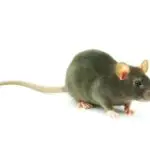Do Rats Help Each Other?
The researchers wanted to find out if rats helped each other. To test this hypothesis, they trapped the rats and released them. They found that the rats tended to help each other more often and more efficiently if they knew that the other rat was in need. This behavior demonstrated empathy and an understanding of the other rat’s discomfort. Rats also preferred helping each other over food and treats. They could tell the difference because they would choose the former over the latter.
When rats are placed in a new cage, they show helping behavior toward their cagemates and even strangers, but not strangers of a different strain. However, a short period of pair-housing is sufficient to motivate helping in the unfamiliar strain. This suggests that genetic relatedness is not necessary for rats to help each other.
The researchers say that the motivation to help others may originate from social interaction and genetics. The same neural bias may be present in humans. The research also indicates that this behavior may be motivated by social bonding and familiarity. Although these findings are not yet fully understood, they offer important insights into how humans can learn to cooperate with one another.
The results of this study will help us understand the role of empathy in human behavior. Empathy may be one of the most important factors determining whether people are more likely to help strangers. Empathy is a powerful emotion that motivates people to help others.








